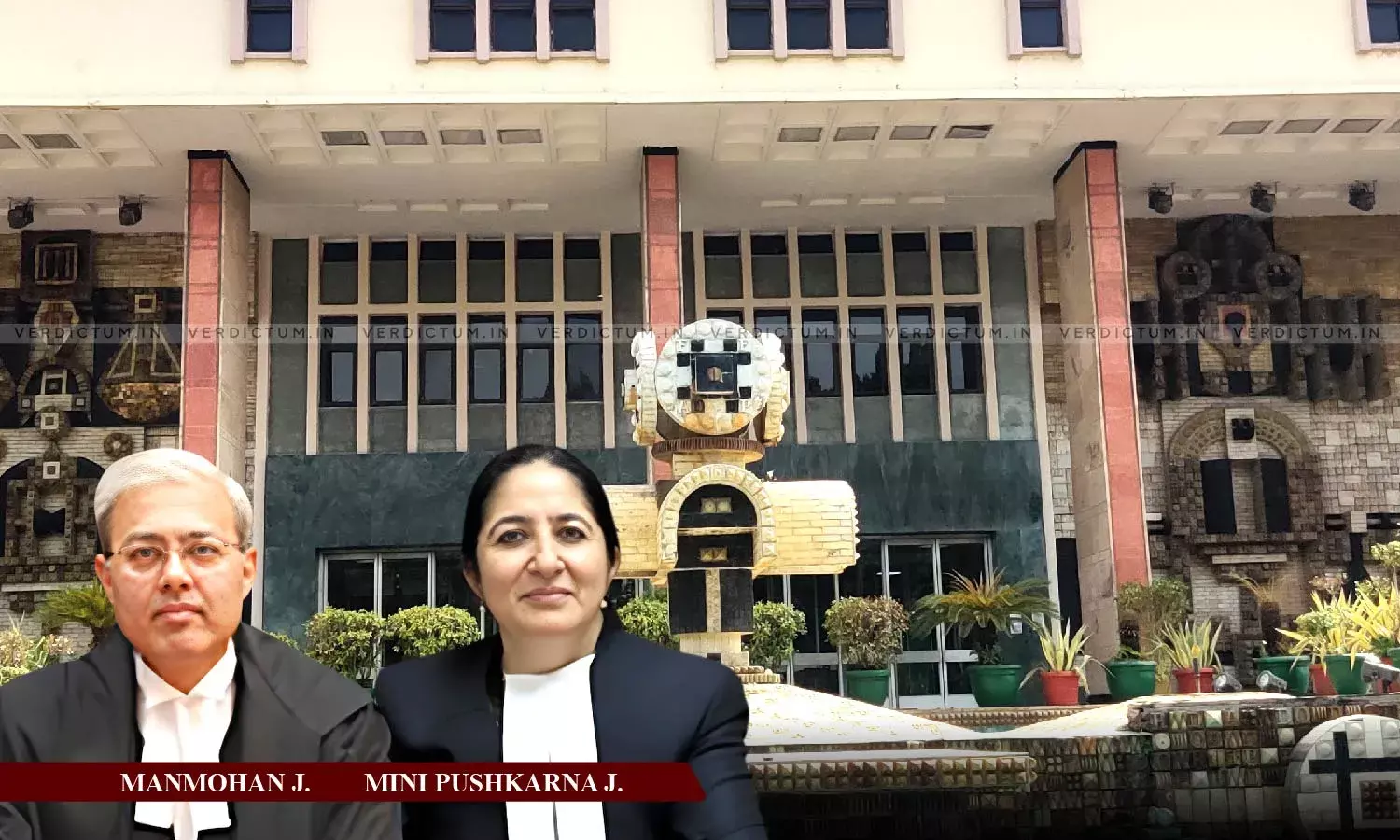Transferring Liabilities From A Previous Loan Agreement Makes Arbitration Clauses In Subsequent Agreements Binding: Delhi HC

The Delhi High Court held that transferring liabilities from a previous loan agreement makes arbitration clauses in subsequent agreements binding on parties.
The Court dismissed an Appeal challenging the order of the Trial Court, whereby the Petition challenging the Arbitration Award was dismissed.
The Bench comprising Justice Manmohan and Justice Mini Pushkarna observed, “The five debit vouchers executed by appellant ex-facie show that the consideration against the five loans of the year 2010 was passed on to the appellant company by way of adjustment of outstanding dues of the year 2008. Since outstanding dues of earlier loan of the year 2008 were converted into five new loans of the year 2010 by way of adjustment, and the five Loan Agreements of the year 2010 contain arbitration clause, the present arbitration proceedings were rightly initiated pursuant to the said arbitration clause”.
Advocate Akshay Ringe appeared for the Appellants, and Proxy Advocate Sharad appeared for the Respondents.
Appellant no.1 requested a loan of Rs. 4 Crores from the Respondent. The loan was approved, and Rs. 3.20 Crores were disbursed to Appellant no.1 (2008 Loan Agreement). The loan was to be repaid within a year, with an interest rate of 25% annually. Appellants no. 2 and 3 provided personal guarantees, and 5.92 acres of land owned by Renaissance Buildcon Co. Pvt. Ltd. (RBCL) was offered as a mortgage to secure the loan. RBCL also gave a corporate guarantee. However, Appellant no.1 failed to repay the loan, and discussions led to the restructuring of the loan. On July 31, 2010, the loan amount plus outstanding interest totaled Rs. 6.37 Crores. The Respondent refinanced the loan by providing five new loans for a period of one year, charging upfront interest at 30% per annum (2010 Loan Agreements). The loan was secured by personal guarantees of Appellants nos. 2 and 3, a corporate guarantee from RBCL, and the collateral of the mortgaged land. Appellants also gave undertakings, debit vouchers, and post-dated cheques for Rs. 9.10 crores. However, default occurred, and the Respondent invoked arbitration under Clause 20 of the 2010 Loan Agreements. The Arbitrator issued a single Arbitral Award and held that the Respondent was entitled to recover Rs. 9.10 crores jointly and severally from Appellants, along with interest for the pre-award period and future interest at a rate of 18% per annum. The Appellants filed a petition under Section 34 of the Arbitration Act, which the Single Judge dismissed. An Appeal was filed challenging the dismissal order of the Trial Court.
The Court noted that the Appellants had not challenged the validity of the 2010 Loan Agreements and never requested disbursement of the loan amounts specified in the agreements. The Arbitrator correctly determined that the debit vouchers referred to the adjustment of the 2008 Loan Agreement and linked it to the second loan of 2010. These vouchers demonstrated that the Appellant company received consideration for the 2010 Loan Agreement by adjusting outstanding dues from 2008. Since the 2010 Loan Agreements contained an arbitration clause, the arbitration proceedings were appropriately initiated pursuant to this clause.
“The five debit vouchers executed by appellant ex-facie show that the consideration against the five loans of the year 2010 was passed on to the appellant company by way of adjustment of outstanding dues of the year 2008. Since outstanding dues of earlier loan of the year 2008 were converted into five new loans of the year 2010 by way of adjustment, and the five Loan Agreements of the year 2010 contain arbitration clause, the present arbitration proceedings were rightly initiated pursuant to the said arbitration clause”, the Bench noted.
The Court noted that the interpretation of an agreement is the responsibility of the Arbitrator, and the Single Judge held that the conclusion drawn by the Arbitrator was plausible and that there was no reason to question the findings. The Court held that no interference was needed. Therefore, the Court held that the Appellants could not object to the continuation of the arbitration proceedings at this stage, as they did not raise any objections before the Arbitrator and continued to participate in the proceedings even after the amendment of 2015.
Accordingly, the Court dismissed the Appeal.
Cause Title: DD Global Capital Pvt Ltd & Ors v M/S S E Investments Ltd

